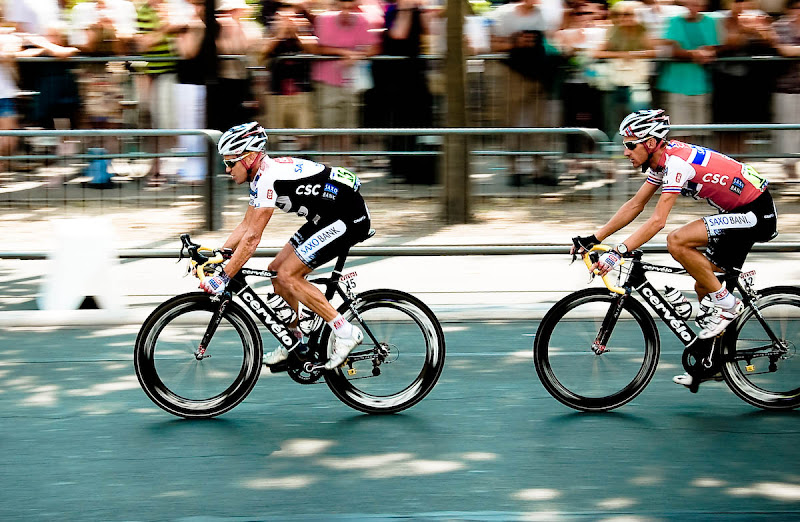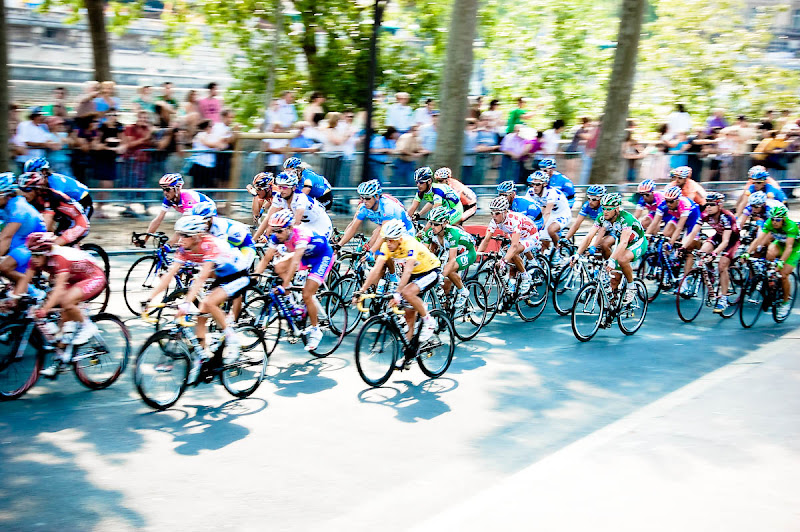Makes Me Move
Gnarls Barkley - Going On
I told Esther yesterday about the Edward's affair and it's implications for his future political career (in short, there's not much left). I was met with a certain incomprehension on her part, aren't politicians supposed to have mistresses? Isn't it just part of the job?
Right, of course, things are different over here.
Zac's comment to a previous post has prompted my to do what I've been meaning to do for a long time and lay out the reasons that I'm confident for an Obama win in November. Here's the relevant part of Zac's comment:
Obama's lead has apparently vanished as a result of these inane attacks. I think it could go either way at this point (including a massive landslide for McCain).Zac sees the possibility for things going either way or even a McCain landslide, I see that as highly improbable. Here's why:

Now, you don't need to have read The Complete Works of Aristotle to see that that doesn't follow. The missing piece is what we can reasonably expect to happen between now and November and what that means for the election.
- Polling shows Obama with a narrow lead.
- This is probably pretty accurate.
- This could easily change
Therefore:- Kurt is Confident that Obama will win
QED QED w00t w00t QED!!!1
Let’s do some quick math. Martin’s reporting suggests to us based on that ratio that nationwide, in one week, the McCain campaign talked to approximately 81,000 voters. The Obama campaign talked to about 27,000 in one state in one night. If we make a reasonable guess that Ohio has something like one-fifteenth of Obama organizers and volunteers, that’d be 405,000 voters contacted in one night nationwide. In 7 days, that’s 2,835,000 voters contacted, compared to the McCain 81,000, a thirty-five-fold edge.That's a big advantage, if Obama can walk into election day knowing that he has a built in 1-3% advantage, that is quite literally game changing.
OK, it's been two weeks, would you believe me that it has taken this long to recover from the intense excitement? Well, you shouldn't I just haven't gotten around to processing the photos until now.
I feel that the Tour de France is the closest that this country gets to NASCAR, especially in la France profonde. There is intense excitement, press coverage, and pre-partying followed by a relatively boring passing of events. Keep in mind that in all of the stages except for the last few miles in Paris, you wait for several hours to witness the group pass your position one time. If it's a mountain stage it may last 20 minutes, but in a faster stage they will have come and gone in five minutes or less.
In Paris, where we were, of course, they pass eight times giving you three to four hours of waiting for about ten minutes of watching the riders spread over an hour. I have to admit that, for me, it has little more appeal than comes from the curiosity of watching a large, public spectacle. At the very least, it gave me the chance to test my new lens (NIKKOR 18-200mm f/3.5-5.6G IF-ED AF-S DX VR: OMG!!! Look at all those letters, it's so awesome!!!) under somewhat challenging conditions. It performed admirably.
We put ourselves at the corner of the Tuileries garden at the end of the Louvre and had a commanding view of the corner. Here's where we were standing:
View Larger Map
This level of cycling is similar to motorsports in another respect; the precision and speed of the "pit crew" which is, in this case, the chase Skoda. One of the teams suffered a rear wheel flat and swapped it out in a matter of seconds, it was over before I realized what was happening.
All in all it was a pleasant experience, it's always impressive to see athletes at the absolute top of their skill.
Full album:
 |
| Tour de France 2008 |
Labels: france paris photography sports
Libertarian blogger of economics Megan McArdle explains her response to people who seemingly take offense when they learn that she is vegan. It pretty much sums up my view of the issue and thus gets a "Recommended Reading" star. A brief quote:
Is it possible to be a vegan without judging other people? It had better be, because I just don't have time to pass judgment on the overwhelming majority of people in the world who eat animal products. Obviously, having decided that it's morally wrong to eat animal products, I can't exactly say that I think it's perfectly okay for other people to do so. On the other hand, I recognize that the universe is a complicated place, and my moral judgements are imperfect.Naturally, this idea that "I can believe something is wrong for me without judging those who disagree" raises complaints of moral relativism from the commenters, but I feel that commenter Jay gets it right, saying:
Come on, people. You can have your own sense of right without feeling compelled to impose that sense on everyone around you. That isn't moral relativism and it doesn't just reduce it to a preference, let's instead call it living in a pluralistic society. The notion that in order to hold a moral judgment you must therefore attempt to impose that judgement on all others is vaguely totalitarian.It's interesting to see the quantity of craziness that many of the other commenters produce which, in turn, serves as a clear reflection of exactly the kind of reaction that McArdle is talking about in the first place.